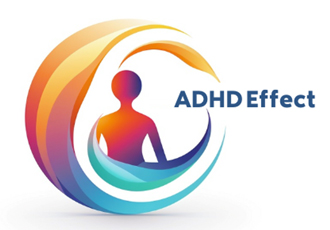About the project
The research project investigates whether a type of 'brain training' called Goal Management Training can help improve focus and concentration in the daily lives of adolescents with Attention-Deficit/ Hyperactivity Disorder (ADHD). The research project is a randomized, controlled treatment study involving around 120 participants, examining the effects of cognitive training on youth aged 12 to 18 with ADHD. Parents and teachers also participate in the project and receive separate guidance.
Objectives
The study aims to evaluate the effectiveness of brain training for youth with ADHD. Additionally, the goal is to explore the characteristics of those adolescents who benefit the most from the training.
Background
The project is a collaboration between the University of Oslo, Lovisenberg Diaconal Hospital, and Innlandet Hospital. Participant recruitment and measurements will take place in child and adolescent mental health services (BUP) at the two hospitals during the period 2023-2026. Despite ADHD being the most common reason for referrals to child and adolescent psychiatry, there is limited knowledge about evidence-based non-pharmacological treatment. While medication works well for a portion of young individuals, it sometimes comes with side effects and doesn't necessarily provide sufficient rehabilitation of everyday functioning. Some core difficulties of ADHD include problems with planning, focusing on, and completing important daily tasks such as finishing homework, remembering cinema visits with friends, or bringing the soccer boots to the game. This might be because the brain's executive functions are often impaired in ADHD. Enhanced executive function is associated with increased likelihood of completing education, inclusion in the workforce, better mental health, and a more harmonious family life.

This study investigates whether a metacognitive training program called Goal Management Training (GMT) can enhance executive functions for youth with ADHD. To reinforce the effects of the training, parents and teachers will also receive information about GMT strategies.
The study examines the effect of GMT compared to standard ADHD treatment at child and adolescent mental health services, measuring executive function using questionnaires from adolescents, parents, and teachers and selected neuropsychological tests. We also investigate effects of GMT on quality of life and self-regulation at school over time. The effectiveness study will contribute to expanding knowledge about ADHD treatment. If GMT is effective, it has the potential to help prevent school dropout and exclusion from the workforce in a vulnerable group of people.
Financing
The project is funded by the University of Oslo, Innlandet Hospital, and the Norwegian Centre of Expertise for Neurodevelopmental Disorders and Hypersomnias, NevSom.
Collaboration
Participants who wish can take part in the collaborative projects BUPGEN and/or BRAINMINT by signing separate consent forms for these studies. Genetic and brain maturation data collected through these collaborative projects will be used to evaluate who benefits the most from brain training. This could contribute to recommendations for tailored treatment in the future.
The project was developed in consultation with ADHD Norge (ADHD Norway). User representatives in the project group include two adults and one adolescent from ADHD Norge, and a teacher. Collaborators include Brian Levine, Rotman Research Institute, Baycrest Health Sciences, Karen Sze Wood, University of California Los Angeles, Martin Teicher, Harvard Medical School & MacLean Hospital, and Terje Nærland, K.G. Jebsen Centre for Developmental Disorders, University of Oslo.
Tools
The treatment method used in the project, Goal Management Training, is a manual-based cognitive rehabilitation technique developed by researchers at Baycrest, Canada.
